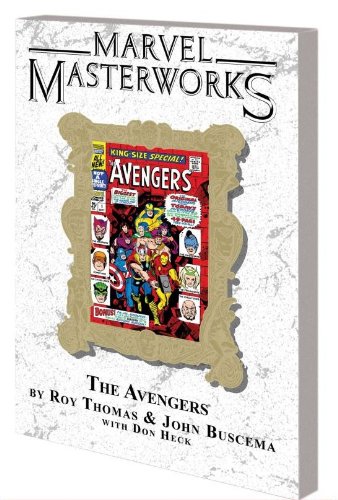


Title: "The House That Jack Built." And so on. A man breaks into a house and opens a door a lion jumps out at him. Superimpose title: "A Surfeit of H2O." The title is the punchline. A man in a field is rained on, tries to escape, is rained into the ground. How could they, when The Avengers itself had lost it and never recaptured it again? The primary technical device for bringing about this atmosphere was the teaser. Other shows tried to imitate it, but never successfully. It carried me through dreary jobs by enabling me to imbue mundane surroundings in schools and industrial parks with fantastic and sinister possibilities. (The failure to observe that distance spoiled many of the later shows.) That atmosphere stayed with me for years. The world of The Avengers extended beyond them to encompass killer robots and plants from outer space-but only a certain distance beyond. If I'd seen Alfred Hitchcock's early films at the time, I would have recognized this as an exaggeration of their milieu, to the verge of parody: those flower sellers and organ grinders seemingly hanging out on street corners but really doing spy business. The atmosphere of the show was new to me: a dark, bright, sharp, woozy, ordered, but unpredictable world where reality could be rolled like a die, figures of speech could become facts (a killing rain, an underground club), and you couldn't be sure that anybody was what he seemed. Patrick Macnee has claimed in interviews that "there was no clever dialogue" except what he and Diana Rigg rewrote, but the lines of the supporting characters belie that. The scripts were solidly constructed, tightly packed, and full of clever dialogue. To us in the States it seemed even better than it was because we hadn't then seen a lot of British TV. The climactic fight scenes were much more exciting than those on American shows: dynamically staged and photographed, and with a satirical edge, which was lost in later seasons.

The American network had omitted the most suggestive episodes, but left in a few lines of dialogue that startled at the time. It seems impossible now that there was once a time when there was too little sex or violence on TV, but what there was was dull and stodgy. And of course there was the sex and violence. But in the beginning you couldn't guess what might come next. In later seasons the show formularized its conflicting elements, like every other show. The mysteries were truly intriguing, the adventures truly exciting, the eerie situations truly frightening, the fantastic explanations truly ingenious, and the jokes truly funny. What a revelation it was to someone who'd grown up watching American TV! It was unpredictable: it mixed mystery, adventure, science fiction, and satire in always changing proportions. Like other American fans, I became aware of it when it burst onto American TV in summer 1966. When I was 16 this series meant a lot to me.


 0 kommentar(er)
0 kommentar(er)
